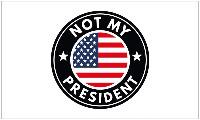- Posts: 5684
- Thank you received: 40
Fla. Judge Rules Obamacare Unconstitutional!!!
- PrintSmith
-

- Mountain Legend
-

Please note the language. "For the common defense and general welfare of the United States". Not "for the common defense of the United States and the individual welfare of each citizen of the United States."Something the Dog Said wrote:
Sure it was.Grady wrote:
Because that power was not granted, to Federal Government by the Constitution.archer wrote:
state governments can.......why not the feds?towermonkey wrote: It should be obvious that the law is unconstitutional. The government simply was not given the authority to require citizens to purchase specific products.
Article I, Section 8 of the Constitution:
The Congress shall have Power To lay and collect Taxes, Duties, Imposts and Excises, to pay the Debts and provide for the common Defence and general Welfare of the United States; but all Duties, Imposts and Excises shall be uniform throughout the United States;
The Supreme Court and numerous other courts have consistently held that essentially the "general Welfare of the United States" is whatever Congress decides it to be.
The Founding Fathers obviously agreed since the Second Congress enacted the Militia Act of 1792 REQUIRED every white male citizen between the ages of 18 - 45 to "provide himself with a good musket or firelock, a sufficient bayonet and belt, two spare flints, and a knapsack, a pouch, with a box therein, to contain not less than twenty four cartridges, suited to the bore of his musket or firelock, each cartridge to contain a proper quantity of powder and ball; or with a good rifle, knapsack, shot-pouch, and powder-horn, twenty balls suited to the bore of his rifle, and a quarter of a pound of powder; and shall appear so armed, accoutred and provided,"
The Founding Fathers even created a socialized hospital system for "sick and disabled seamen" in 1798 by withholding taxes from the wages of seaman to create federal hospitals in the 1798 "For the Relief of Sick and Disabled Seamen" Act.
The Constitution also gave Congress authority for "organizing, arming and disciplining, the Militia" I'm pretty certain that this specifically ceded authority covers their ability to set the minimum level of armament a member of the Militia called forth into federal duty is required to show up with, but I fail to find a similar ceding of power with regards to the individual welfare of a citizen of the union and their health care. I'm quite certain that new meanings can be tortured from the original language of our Constitution to suite a particular ideology, but I'm also quite certain that prohibitions against doing just that are easily found. Why, it is even addressed in the Federalist papers, written by those who crafted the specific language of the Constitution, that the powers of Congress were limited to those specifically listed under the preamble to Article I Section 8 and that anyone who was saying it gave the Congress an unlimited authority were making up specious arguments and the very fact that they had to resort to such tactics should be proof enough that such was not the case.
Please Log in or Create an account to join the conversation.
- Something the Dog Said
-

- Mountain Legend
-

- Posts: 3444
- Thank you received: 11
"Remember to always be yourself. Unless you can be batman. Then always be batman." Unknown
Please Log in or Create an account to join the conversation.
- PrintSmith
-

- Mountain Legend
-

- Posts: 5684
- Thank you received: 40
If you believe that one can invent a new meaning and torture that meaning from the original text and intent, I'm certain one can believe that to be true. It is certainly not contained within the language itself and we all know that the language was crafted such that even those without formal education would understand the powers that were being ceded. Why, the authors of the language specifically said that the power of Congress to levy taxes was restricted to the specifically listed articles and that it wasn't an unlimited power when they were defending the Constitution in the Federalist Papers. Who is to be believed here? The men who wrote the document or those who were seeking to advance the political agenda of the President who nominated them to their seat on the Supreme Court? I'll choose to believe the ones who pledged their lives, fortunes and sacred honor to create the nation. I think they are more believable and trustworthy than the men who were seated behind the bench by a president and senate that threatened to pack that court with ones who would enforce the presidential will.Something the Dog Said wrote: It is not a question as to whether we choose to give the federal government that power, the Constitution already has done so.
Please Log in or Create an account to join the conversation.
- PrintSmith
-

- Mountain Legend
-

- Posts: 5684
- Thank you received: 40
Requiring health insurance be purchased will not ensure the health of the general population of the United States Dog. Requiring that a citizen go to the doctor every week might make an impact, but requiring the purchase of a financial commodity certainly won't. That is one reason why the individual mandate doesn't even meet the tortured meaning of the general welfare clause. Making someone purchase insurance in no way ensures that they visit a doctor to get treated for any illness. It doesn't provide for the general welfare even under the invented meaning of that phrase.Something the Dog Said wrote: It is also written by one of the authors in the nonbinding Federalist papers that the powers of Congress are not to be limited by the specific enumeration of powers. The Supreme Court has ruled on several occasions that it is within the power of Congress to determine what is in the general welfare of the United States. And certainly ensuring the health of the general population of the United States would be in the general welfare, as was ensuring the equal protection of individuals, as was prohibiting the labor exploitation of the individual children, as was providing farm land to individuals, as was providing benefits to individuals of a certain age or disability, as was the provision of minimum wages to individuals in the workforce, etc. etc. etc.
Please Log in or Create an account to join the conversation.
- Something the Dog Said
-

- Mountain Legend
-

- Posts: 3444
- Thank you received: 11
You seem to think that the Madison view was unanimous, but there was much discussion at the time on this issue, and clearly the Hamilton viewpoint carried the day. Washington and Jefferson both supported the Hamilton view during their administration, and Congress from the very beginning used that power to create subsidies for agriculture, for internal improvements and for all matters not enumerated in the Constitution. You obviously do not agree with the Hamilton view, but it was and is the law of the land. As the Supreme Court has stated, it is up to Congress to determine what is in the general welfare.
"Remember to always be yourself. Unless you can be batman. Then always be batman." Unknown
Please Log in or Create an account to join the conversation.
- Something the Dog Said
-

- Mountain Legend
-

- Posts: 3444
- Thank you received: 11
PrintSmith wrote:
Requiring health insurance be purchased will not ensure the health of the general population of the United States Dog. Requiring that a citizen go to the doctor every week might make an impact, but requiring the purchase of a financial commodity certainly won't. That is one reason why the individual mandate doesn't even meet the tortured meaning of the general welfare clause. Making someone purchase insurance in no way ensures that they visit a doctor to get treated for any illness. It doesn't provide for the general welfare even under the invented meaning of that phrase.Something the Dog Said wrote: It is also written by one of the authors in the nonbinding Federalist papers that the powers of Congress are not to be limited by the specific enumeration of powers. The Supreme Court has ruled on several occasions that it is within the power of Congress to determine what is in the general welfare of the United States. And certainly ensuring the health of the general population of the United States would be in the general welfare, as was ensuring the equal protection of individuals, as was prohibiting the labor exploitation of the individual children, as was providing farm land to individuals, as was providing benefits to individuals of a certain age or disability, as was the provision of minimum wages to individuals in the workforce, etc. etc. etc.
In your opinion. In the opinion of myself, and the majority of reasonably intelligent Americans, the availability of health care to most individuals would promote the general welfare of the United States.
"Remember to always be yourself. Unless you can be batman. Then always be batman." Unknown
Please Log in or Create an account to join the conversation.
- major bean
-

- Mountain Legend
-

- Posts: 2612
- Thank you received: 0
Regards,
Major Bean
Please Log in or Create an account to join the conversation.
- HEARTLESS
-

- User is blocked
-

- Posts: 4316
- Thank you received: 30
The silent majority will be silent no more.
Please Log in or Create an account to join the conversation.
- LOL
-

- Mountain Legend
-

- Posts: 6393
- Thank you received: 18
That is one scary thought...."general Welfare of the United States" is whatever Congress decides it to be.
Please continue, I am interested in hearing more from the left why this mandate is constitutional. It seems to be an "ends justifies the means" argument and I have not heard single a convincing argument yet.
No it is not political at all. It is pure principle. There is no way the Feds can mandate that you buy a product or else be in violation of the law. It is not a Tax, it is a penalty, and you are a law violator if you don't comply.
If you want to be, press one. If you want not to be, press 2
Republicans are red, democrats are blue, neither of them, gives a flip about you.
Please Log in or Create an account to join the conversation.
- Pony Soldier
-

- User is blocked
-

- Posts: 4749
- Thank you received: 43
Something the Dog Said wrote:
Sure it was.Grady wrote:
Because that power was not granted, to Federal Government by the Constitution.archer wrote:
state governments can.......why not the feds?towermonkey wrote: It should be obvious that the law is unconstitutional. The government simply was not given the authority to require citizens to purchase specific products.
Article I, Section 8 of the Constitution:
The Congress shall have Power To lay and collect Taxes, Duties, Imposts and Excises, to pay the Debts and provide for the common Defence and general Welfare of the United States; but all Duties, Imposts and Excises shall be uniform throughout the United States;
The Supreme Court and numerous other courts have consistently held that essentially the "general Welfare of the United States" is whatever Congress decides it to be.
The Founding Fathers obviously agreed since the Second Congress enacted the Militia Act of 1792 REQUIRED every white male citizen between the ages of 18 - 45 to "provide himself with a good musket or firelock, a sufficient bayonet and belt, two spare flints, and a knapsack, a pouch, with a box therein, to contain not less than twenty four cartridges, suited to the bore of his musket or firelock, each cartridge to contain a proper quantity of powder and ball; or with a good rifle, knapsack, shot-pouch, and powder-horn, twenty balls suited to the bore of his rifle, and a quarter of a pound of powder; and shall appear so armed, accoutred and provided,"
The Founding Fathers even created a socialized hospital system for "sick and disabled seamen" in 1798 by withholding taxes from the wages of seaman to create federal hospitals in the 1798 "For the Relief of Sick and Disabled Seamen" Act.
Very good - but this is not covered. If the law was single payer, well, okay, this would cover it. The law, as it stands, requires that citizens purchase goods and services that they may not want or need from private companies. That's what the whole lawsuit is about and when the supremes find the law unconstitutional, it will pave the way for single payer.
Please Log in or Create an account to join the conversation.





